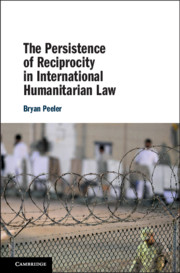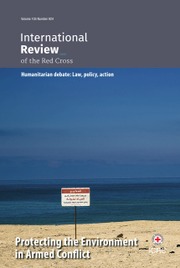The Persistence of Reciprocity in International Humanitarian Law
The expectation of reciprocity continues to be an important factor when states' consider their legal obligations in armed conflicts. In this monograph, Peeler looks at the text and negotiations around the 1949 Geneva Conventions and the Protocols Additional to the Geneva Conventions from 1977 to demonstrate the many places where international humanitarian law maintains expectations of reciprocity. This complements an examination of US policy regarding its Prisoner of War obligations in both the Vietnam War and the Global War on Terror, demonstrating how states make use of the expectation of reciprocity found in international humanitarian law to respond to continued non-compliance by an enemy.
- Establishes a nuanced view of reciprocity and explores in detail how reciprocity works in international law
- Explores the use of H. L. A. Hart's theory of law and demonstrates how reciprocity has been preserved within international humanitarian law
- Demonstrates how the use of a multi-actor setting of state decision making and other nuanced forms of reciprocity are considered in debates about legal obligations during armed conflicts
Reviews & endorsements
'Best suited for political scientists and international relations scholars … balances empirical evidence and legal-political considerations with clear, accessible, and comprehensible arguments and offers a stimulating perspective for re-examining the consequences account of state compliance with IHL obligations.' Saeed Bagheri, Edinburgh Law Review
Product details
December 2019Hardback
9781108486699
224 pages
235 × 156 × 17 mm
0.43kg
1 b/w illus. 1 table
Available
Table of Contents
- 1. Introduction
- 2. Reciprocity and IHL compliance
- 3. Reciprocity and the updating of the Geneva conventions
- 4. The expectation of reciprocity and the war in Vietnam
- 5. The expectation of reciprocity and the GWOT
- 6. Conclusion.







